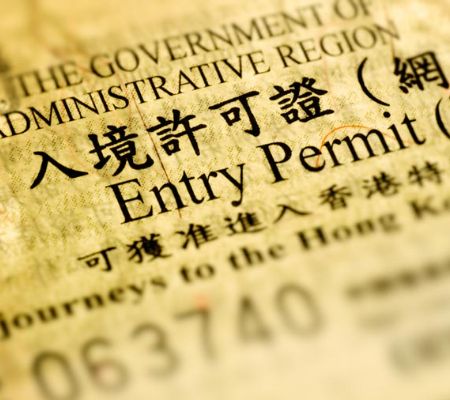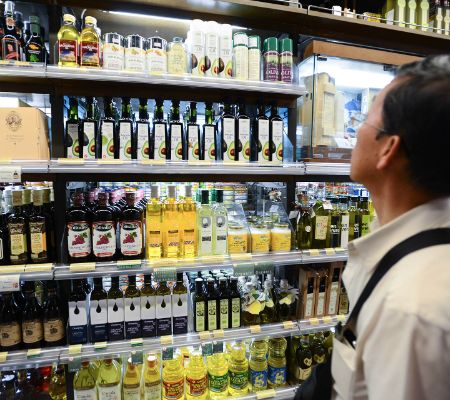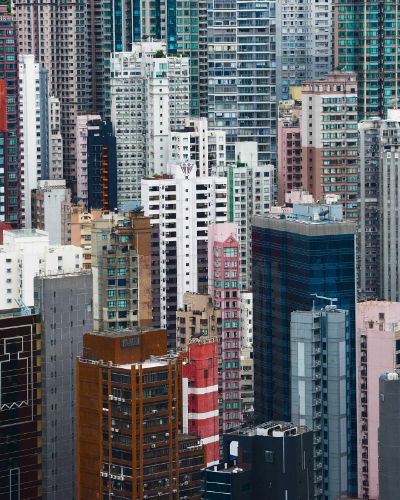Moving to Hong Kong from Malaysia: An Expat's Guide
Hong Kong, an autonomous territory in the south of China, is a vibrant and bustling city that attracts expats from around the world. With its unique blend of Eastern and Western cultures, a high standard of living, and a thriving economy, it's no wonder that many people choose to relocate to this bustling metropolis.
Crown Relocations started in Hong Kong. With extensive experience and knowledge of the city, we will cover the essential topics for expats moving to Hong Kong, including living costs, visas, accommodation, health, and the educational system.
Crown Relocations started in Hong Kong. With extensive experience and knowledge of the city, we will cover the essential topics for expats moving to Hong Kong, including living costs, visas, accommodation, health, and the educational system.
Hong Kong is a bustling metropolis that has long been a popular destination for expats. With its vibrant culture, thriving economy, and stunning skyline, it's no wonder that so many people choose to make Hong Kong their home.

"Moving to Hong Kong is a transformative experience, with its breathtaking skyline, picturesque landscapes, and endless possibilities. It's not just a place to live, but to thrive, create, and be part of something extraordinary. " - Hazel Chan, Head of Marketing, North Asia
Whether you are relocating for work, study, or simply seeking a new adventure, this comprehensive guide will provide you with essential information to make your move to Hong Kong as smooth and enjoyable as possible. From visa requirements to housing options, we have you covered.
Visa Requirements for Moving to Hong Kong
Before moving to Hong Kong, it is important to understand the visa requirements and process. There are different types of visas available for expats depending on their purpose of stay. The most common visa is the employment visa, which is required for individuals who plan to work in Hong Kong.
Other types of visas include investment visas for entrepreneurs and business investors, dependent visas for family members of expats, and student visas for those pursuing education in Hong Kong.
Applying for a visa can be a complex process, but there are several tips that can help navigate through it smoothly. It is important to gather all the necessary documents and submit them accurately and on time.
Applying for a visa can be a complex process, but there are several tips that can help navigate through it smoothly. It is important to gather all the necessary documents and submit them accurately and on time.
It is also advisable to seek professional assistance from immigration consultants or lawyers who specialize in Hong Kong immigration laws. They can guide you through the process and ensure that all requirements are met.

How to apply for Visas when moving to Hong Kong
To move to Hong Kong, you will need a visa, which can be applied for under the General Employment (GEP) Policy for those moving to work in the country.
The visa is generally issued for a specific time period and requires a confirmed job offer from an employer in Hong Kong.
For those not working, a visa may be required if you plan to stay for more than 90 days and need to apply for an extension.
The Hong Kong Immigration Department will assess your application based on your qualifications and the position you are applying for.
To apply for a Hong Kong visa, you will need to provide documentation, including your passport and a statement from your employer describing the position you have been offered.
It is essential to check with the Chinese Embassy for the latest information and requirements, as visa requirements can change.
If you have had a Hong Kong ID card for seven consecutive years, you have the option to apply for permanent residency.
However, this is not a requirement for expats moving to Hong Kong for work or study.
Do you know Crown Relocations offers professional personalised visa advice through our immigration expert? Find out more here.
Cost of Living in Hong Kong
Hong Kong is known for its high cost of living, making it the second most expensive city in Asia and the 33rd most expensive city in the world.
A family of four can expect to spend approximately HK$54,454 per month, while a single person's monthly expenses would be around HK$37,348.
The cost of living in Hong Kong is influenced by factors such as the region's overinflated property market, high demand for housing, and the importation of most produce and commodities.
However, the typically high salaries earned by expats often offset these costs, and many find their quality of life is higher than it was back home.
The living cost in Hong Kong varies depending on individual circumstances and lifestyle choices.
Here are some details on the cost of living in Hong Kong for expats:


Housing Cost
Housing in Hong Kong is notoriously expensive, with a high percentage of expats' salaries spent on rent. Older Chinese-style apartments may be more reasonably priced but don't afford the space that Western expats may be used to. The demand for housing far outstrips the supply, and as one of the most densely populated territories in the world, this contributes to astronomical accommodation costs.

Food
Expats can find some bargain buys or cheap but tasty food somewhere in Hong Kong, but generally, food and dining out can be expensive. A McDonald's Value Meal costs between HK$24.00 and HK$35.00, while a set meal at an average local café (Cha Chaan Teng) can range from HK$50.00 to HK$80.00.

Transportation
Public transport is cheap, clean, and reliable, making it the preferred mode of transportation for most people. An MTR trip from Central to Causeway Bay with an Octopus card costs HK$5.50 while crossing the harbour from Central to Tsim Sha Tsui on Star Ferry costs between HK$2.20 and HK$3.70.

Groceries
To estimate the average cost of groceries per week, you can calculate the total cost of these items based on your consumption and preferences. Considering the prices provided, a rough estimate for a single person's weekly grocery expenses in Hong Kong could range from HK$150 to HK$300, depending on the quantity and quality of items purchased.
Finding the Right Housing in Hong Kong

Finding suitable housing in Hong Kong can be a challenge due to the high demand and limited supply of properties. The housing market in Hong Kong is known for its high prices and small living spaces.
However, with some tips and tricks, expats can find the right housing that meets their needs and budget.
Finding accommodation in Hong Kong can be challenging due to the region's overinflated property market and high demand for housing.
The cost of accommodation varies greatly depending on the location, size, and amenities of the property. Expats can choose from a range of accommodation options, including serviced apartments, hotels, and traditional Chinese-style apartments.
It is essential to consider the location, proximity to amenities, and the cost when choosing a place to live in Hong Kong.
Renting a house or an apartment in Hong Kong can be pricy, especially in Kowloon, where the population density is the highest. The average rent for a one-bedroom apartment in Hong Kong can range from 12,000 to 20,000 HKD (1,500 to 2,500 USD) or more.
What are the best neighbourhoods to live in Hong Kong for expats
Below are some of the best neighbourhoods in Hong Kong for expats, highlighting the unique attractions and amenities that make them so desirable.
| Neighbourhood | The Attractions |
|---|---|
| Mid-Levels | Luxurious high-rise apartments, proximity to entertainment districts like Soho, Lan Kwai Fong, comprehensive facilities, close to international schools. |
| The Peak | Affluent neighborhood, diverse housing options from low-rise apartment blocks to standalone houses, beautiful hiking trails, Peak Tower and Peak Galleria retail centers, international primary school, cooler temperatures due to elevation. |
| Pok Fu Lam | Oldest neighborhood on Hong Kong Island, 15-minute drive to Central and beaches, sizeable apartments in colonial or modern buildings, popular with families due to nearby international schools, parks, Cyberport shopping complex. |
| Kennedy Town | Cool suburb with a waterside identity, mix of modern restaurants and local seafood sellers, promenade for strolling, Olympic-sized public pool for swimming, hiking trails along the Hong Kong Trail. |
| Southside | Luxurious residential neighbourhoods like Shouson Hill, Deepwater Bay, Repulse Bay, Stanley, Tai Tam, Shek O, Big Wave Bay; Stanley Market and promenade with restaurants and bars; water sports activities; Repulse Bay's retail centers and beach-side amenities; Happy Valley's friendly community with sports facilities; Ho Man Tin's cosmopolitan past and proximity to international schools; Kowloon Tong's prestigious address with standalone houses along Kadoorie Avenue. |
| Wan Chai | Evolved from a fishing village to a vibrant district with shops, hotels, cafes, high-end restaurants; appealing to young expats for its dynamic atmosphere; variety of facilities for families including Baumhaus and swimming pool. |
| Tuen Mun | New Territories suburb with hiking trails, horse riding school, international schools; roomy high-rise apartments and low-rise beach houses; town center with shopping plaza and cultural square. |
| Tung Chung | Private estates with clubhouses, gyms, pools; close to CityGate Outlets and the airport; variety of house and apartment types; convenient transportation via the Hong Kong-Zhuhai-Macau Bridge. |
| Tai Po | Home to top-rated international schools in Hong Kong; appealing for families due to educational opportunities; diverse housing options. |
Read our in-depth study if you should buy or rent in Hong Kong.
Educational System Options in HK for Expats

Hong Kong offers a wide range of education options for expat families, including international schools and local schools. International schools in Hong Kong follow different curricula, such as British, American, or International Baccalaureate (IB).
These schools offer a high standard of education and are popular among expat families.
Hong Kong has a diverse educational system, with a mix of public and private schools offering a range of curricula, including local, international, and bilingual programs.
Expats with children may choose to enrol their children in international schools, which follow curricula from various countries, or in local schools, which offer a mix of Cantonese and English instruction.
For expats moving to Hong Kong with kids, there are various education options available in the city.
Here are some key points based on our research and understanding:
- Most expats opt for international schools in Hong Kong due to the different education styles and easier adjustment if they need to relocate back.
- Local schools are an option, but they primarily use Cantonese as the teaching medium, which can be challenging for non-Cantonese speaking children and parents.
- International schools in Hong Kong, like those under the English Schools Foundation (ESF), offer education entirely in English using the IB program throughout.
- Direct Subsidy Schools operate with government subsidies but have more independence and can charge lower fees.
- Private schools vary in standards and prices, with some requiring corporate debentures for easier admission.
- Admission to primary and secondary ESF schools is bound by zoning, so parents should consider this when choosing accommodation.
- Homeschooling is an option in Hong Kong, although laws around it are vague, and families should inform the Education Bureau.
- Tutors are commonly hired in Hong Kong to assist children with various educational needs or to help them adjust to new curriculums.
- Most international schools in Hong Kong offer special needs facilities, but the extent of support varies widely among schools.
- Some schools aim to keep special needs children in mainstream classes, while others have more specialized support systems.
In summary, expats moving to Hong Kong with kids have a range of education options to consider, from international schools with English instruction to local schools using Cantonese as the primary language.
Crown’s school search service can be of great help if you have no idea where to start.
Navigating the Healthcare System in Hong Kong
Hong Kong has a world-class healthcare system that is known for its high quality and efficiency. Expats have access to both public and private healthcare options.
The government subsidizes the public healthcare system in Hong Kong and provides affordable and comprehensive healthcare services. Expats can also choose to opt for private healthcare, which offers shorter waiting times and more personalized care.
The healthcare system for expats in Hong Kong offers a choice between public and private healthcare services.
Here are key points that you as an expat should take note of:
- Public healthcare in Hong Kong is heavily subsidized and available to residents with a Hong Kong Identity Card, offering affordable medical services.
- Public hospitals have adequate equipment, but there may be language barriers for expats as not all medical personnel speak English.
- Long waiting times for specialist care are common in public hospitals, leading many expats to opt for private healthcare.
- Private healthcare facilities in Hong Kong provide quicker access to medical treatment, with shorter waiting times compared to public hospitals.
- Private hospitals have international accreditation, and English-speaking medical staff, and offer more comfort and privacy, making them popular among expats.
- The cost of medical treatment in private hospitals in Hong Kong is among the highest globally, but expats can choose less costly room options to minimize expenses
- Expats are advised to opt for international health insurance coverage in Hong Kong due to the high healthcare costs, ensuring they are adequately insured during medical emergencies.
- Health insurance is often included in employment contracts, but expats without this benefit can choose from various insurance providers offering different coverage options.
- Negotiating with employers for healthcare subsidies is recommended, and comparing quotes before selecting an insurance provider is advisable for those securing a plan themselves

When navigating the healthcare system in Hong Kong, it is important to find the right healthcare provider that meets your needs. It is advisable to do research and read reviews before choosing a doctor or hospital. Expats should also consider purchasing health insurance to cover any medical expenses not covered by the public healthcare system.
The local emergency contact number in Hong Kong is 999, which will allow you to get an ambulance that will take you to public facilities. Dialing 1878 000 will drop you at the hospital of your request and this service belongs to The St John ambulance service. This emergency service is free of charge.
Taxes in HK for Foreigners
Expats working in Hong Kong are generally required to pay taxes on their income sourced in Hong Kong. The tax system in Hong Kong follows a territorial basis, meaning that only income derived from Hong Kong sources is subject to Hong Kong tax.
This includes employment income earned in Hong Kong, income from an office held in Hong Kong, and income from a Hong Kong pension.
For expats working in Hong Kong, the tax rates are progressive, ranging from 2% to 17% based on the net taxable income for the year.
It's important to note that even if an expat is not ordinarily resident in Hong Kong, they may still be subject to Hong Kong salaries tax if their employment income is sourced in Hong Kong.
However, specific exemptions may apply if an employee renders all their services outside Hong Kong or stays in Hong Kong for less than 60 days in a tax year.
In summary, expats working in Hong Kong are typically required to pay taxes on their income sourced in Hong Kong, with the tax rates being relatively favourable compared to many other countries.
It's essential for expats to understand the tax regulations in Hong Kong and ensure compliance with the local tax laws.
Exploring Hong Kong's Culture and Cuisine: What to Expect as an Expat

As an expat in Hong Kong, you can expect a unique blend of Eastern and Western influences in the city's culture and lifestyle. Hong Kong is known for its deep-rooted history, vibrant social etiquette, and rich cultural heritage, with Cantonese as the main language and English widely spoken in business settings
Hong Kong is a melting pot of cultures and offers a rich and diverse culinary scene. The city is known for its vibrant street markets, traditional festivals, and modern art galleries.
Hong Kong is also known for its fast pace of life, with a strong work culture and long working hours being common. However, the city also offers a vibrant social scene, with mooncake festivals, dragon boat races, and other cultural events providing opportunities to meet locals and build relationships.
Exploring Hong Kong's day-to-day life can be both challenging and rewarding for expats. The city's transport system is efficient, and English is widely spoken, making it relatively easy to navigate.
However, cultural differences and language barriers can still present challenges, especially when it comes to building relationships and understanding local customs and values.
When it comes to cuisine, Hong Kong offers a wide range of options, from traditional Cantonese dim sum to international cuisines. It is advisable to try local street food and visit local eateries to experience the authentic flavours of Hong Kong.
Expats can also explore the city's Michelin-starred restaurants and trendy cafes for a more upscale dining experience.
Conclusion
Expats moving to Hong Kong can expect a vibrant and bustling city that blends Eastern and Western cultures, offering a high standard of living and a thriving economy.
Despite the city's reputation for a high cost of living, influenced by factors like expensive housing and dining, the typically high expat salaries often offset these costs, leading to a quality of life that many find superior to their home countries.

No One Knows Better Than Us.
Get moving with our free moving quote form and let us take care of the rest!
